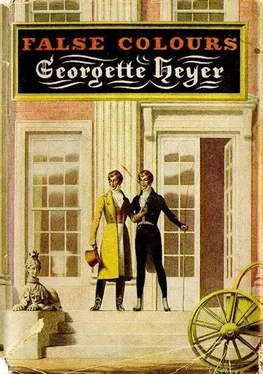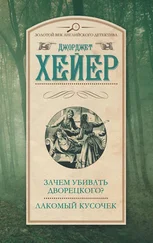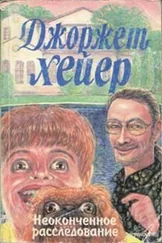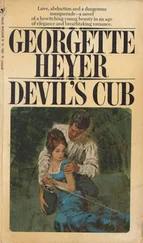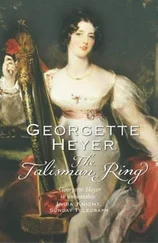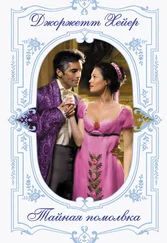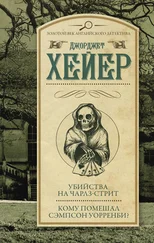Джорджетт Хейер - False Colours
Здесь есть возможность читать онлайн «Джорджетт Хейер - False Colours» весь текст электронной книги совершенно бесплатно (целиком полную версию без сокращений). В некоторых случаях можно слушать аудио, скачать через торрент в формате fb2 и присутствует краткое содержание. Год выпуска: 1963, Жанр: Исторические любовные романы, на английском языке. Описание произведения, (предисловие) а так же отзывы посетителей доступны на портале библиотеки ЛибКат.
- Название:False Colours
- Автор:
- Жанр:
- Год:1963
- ISBN:нет данных
- Рейтинг книги:5 / 5. Голосов: 1
-
Избранное:Добавить в избранное
- Отзывы:
-
Ваша оценка:
- 100
- 1
- 2
- 3
- 4
- 5
False Colours: краткое содержание, описание и аннотация
Предлагаем к чтению аннотацию, описание, краткое содержание или предисловие (зависит от того, что написал сам автор книги «False Colours»). Если вы не нашли необходимую информацию о книге — напишите в комментариях, мы постараемся отыскать её.
False Colours — читать онлайн бесплатно полную книгу (весь текст) целиком
Ниже представлен текст книги, разбитый по страницам. Система сохранения места последней прочитанной страницы, позволяет с удобством читать онлайн бесплатно книгу «False Colours», без необходимости каждый раз заново искать на чём Вы остановились. Поставьте закладку, и сможете в любой момент перейти на страницу, на которой закончили чтение.
Интервал:
Закладка:
Georgette Heyer
False Colours
1
It was past two o’clock when the job-chaise turned into Hill Street; and, as the watchman wending his way round Berkeley Square monotonously announced, a fine night. A full moon rode in the cloudless sky, dimming the street-lamps: even, as the solitary traveller had noticed, in Pall Mall, where gas-lighting had replaced the oil-burners. Linkmen, carriages, and light streaming from an open door on the east side of Berkeley Square indicated that not all the members of the ton had left London; but at the end of June the Season was drawing to a close; and it did not surprise the traveller to find Hill Street deserted. It would not have surprised him if the knocker had been removed from the door of a certain house on the north side of the street, but when the chaise drew up a swift scrutiny reassured him: the Earl of Denville’s town residence had not yet been abandoned for the summer months. The traveller, a young man, wearing a tasselled and corded Polish greatcoat, and a shallow-crowned beaver, sprang down from the chaise, dragged a bulging portmanteau from the floor of this vehicle, set it down on the flagway, and pulled out his purse. The postboys paid, he picked up the portmanteau, trod up the steps to the front-door, and gave the iron bell-pull a tug.
By the time the last echo of the clapper died away the chaise had disappeared, but no one had responded to the bell’s summons. The traveller gave it a second, and more vigorous, tug. He heard it clanging somewhere in the nether regions, but was forced to conclude, after waiting for several minutes, that it had failed to rouse any of my lord’s servants.
He considered the matter. It was possible, though unlikely, that the household had removed from London without taking the knocker from the door, or shuttering the windows. To verify that the windows had not been shuttered he retreated to the flagway, and scanned the house, perceiving that not only were all the windows unshuttered but that one of them, on the entrance-floor, had been left open a few inches at the top. This gave, as he knew, on to the dining-room; and to reach it presented a lithe and determined young man with no insuperable difficulty. Divesting himself of his greatcoat, and trusting that no watchman would come down the street in time to observe his clandestine entry, he proceeded to demonstrate to the uninterested moon that Colonel Dan Mackinnon, of the Coldstream Guards, was not without a rival in the art of perilous climbing.
No such thought entered the Hon. Christopher Fancot’s head: he was not acquainted with Colonel Mackinnon; and he did not think the feat of reaching the desired window-sill either dangerous or difficult. Once there it was easy to thrust up the lower sash, and to swing himself into the room. A couple of minutes later he emerged into the hall, where, upon a marble-topped side-table, he found a lamp burning low, with an unlit candle in a silver holder standing beside it. Observing these objects with an intelligent eye, Mr Fancot concluded that their noble owner had told his servants not to wait up for him. The subsequent discovery that the front-door was unbolted confirmed him in this belief. As he opened the door, to retrieve his belongings from the porch, he reflected, with an inward chuckle, that when his lordship did come home at last he would find his bed occupied by a most unlooked-for visitor, and would in all probability think that he was a great deal boskier than he had supposed.
On this thought, which appeared, from the mischievous smile which played about the corners of his mouth, to afford Mr Fancot amusement, he kindled the candle at the lamp’s low flame, and made his way towards the staircase.
He went softly up, the candlestick held in one hand, his portmanteau in the other, and his greatcoat flung over his shoulder. No creaking stair betrayed him, but as he rounded the bend in the second flight a door opened on the floor above, and a voice said anxiously: “Evelyn?”
He looked up, seeing, in the light of a bedroom-candle held aloft in a fragile hand, a feminine form enveloped in a cloud of lace, which was caught together by ribbons of the palest green satin. From under a nightcap of charming design several ringlets the colour of ripe corn had been allowed to escape. The gentleman on the stairs said appreciatively: “ What a fetching cap, love!”
The vision thus addressed heaved a sigh of relief, but said, with a gurgle of laughter: “You absurd boy! Oh, Evelyn, I’m so thankful you’ve come, but what in the world has detained you? I’ve been sick with apprehension!”
There was a quizzical gleam in the gentleman’s eyes, but he said in accents of deep reproach: “Come, come, Mama—!”
“It may be very well for you to say Come, come, Mama ,” she retorted, “but when you faithfully promised to return not a day later than—” She broke off, staring down at him in sudden doubt.
Abandoning the portmanteau, the gentleman shrugged the greatcoat from his shoulder, pulled off his hat, and mounted the remaining stairs two at a time, saying still more reproachfully: “No, really, Mama! How can you be so unnatural a parent?”
“ Kit!” uttered his unnatural parent, in a smothered shriek. “Oh, my darling, my dearest son!”
Mr Fancot, receiving his widowed mama on his bosom, caught her in a comprehensive hug, but said, on a note of laughter: “Oh, what a rapper! I’m not your dearest son!”
Standing on tiptoe to kiss his lean cheek, and dropping wax from her tilted candle down the sleeve of his coat, Lady Denville replied with dignity that she had never felt the smallest preference for either of her twin sons.
“Of course not! How should you, when you can’t tell us apart?” said Mr Fancot, prudently removing the candlestick from her grasp.
“I can tell you apart!” she declared. “If I had expected to see you I should have recognized you instantly! The thing was, I thought you were in Vienna.”
“No, I’m here,” said Mr Fancot, smiling lovingly down at her. “Stewart gave me leave of absence: are you pleased?”
“Oh, no, not a bit!” she said, tucking her hand in his arm, and drawing him into her bedchamber. “Let me look at you, wicked one! Oh, I can’t see you properly! Light all the candles, dearest, and then we may be comfortable. The money that is spent on candles in this house! I shouldn’t have thought it possible if Dinting hadn’t shown me the chandler’s bill, which, I must say, I wish she had not, for what, I ask you, Kit, is the use of knowing the cost of candles? One must have them, after all, and even your father never desired me to purchase tallow ones.”
“I suppose one might burn fewer,” remarked Kit, applying a taper to some half-dozen which stood in two chandeliers on the dressing-table.
“No, no, nothing is more dismal than an ill-lit room! Light the ones on the mantelpiece, dearest! Yes, that is much better! Now come and tell me all about yourself!”
She had drifted over to an elegant day-bed, and patted it invitingly, but Kit did not immediately obey the summons. He stood looking about him at the scene he had illumined, exclaiming: “Why, how is this, Mama? You were used to live in a rose-garden, and now one would think oneself at the bottom of the sea!”
As this was the impression she had hoped to create when, at stupendous cost, she had had the room redecorated in varying shades of green, she was pleased, and said approvingly: “Exactly so! I can’t think how I endured those commonplace roses for so long—particularly when poor Mr Brummell told me years ago that I was one of the few females whom green becomes better than any other colour.”
Читать дальшеИнтервал:
Закладка:
Похожие книги на «False Colours»
Представляем Вашему вниманию похожие книги на «False Colours» списком для выбора. Мы отобрали схожую по названию и смыслу литературу в надежде предоставить читателям больше вариантов отыскать новые, интересные, ещё непрочитанные произведения.
Обсуждение, отзывы о книге «False Colours» и просто собственные мнения читателей. Оставьте ваши комментарии, напишите, что Вы думаете о произведении, его смысле или главных героях. Укажите что конкретно понравилось, а что нет, и почему Вы так считаете.
